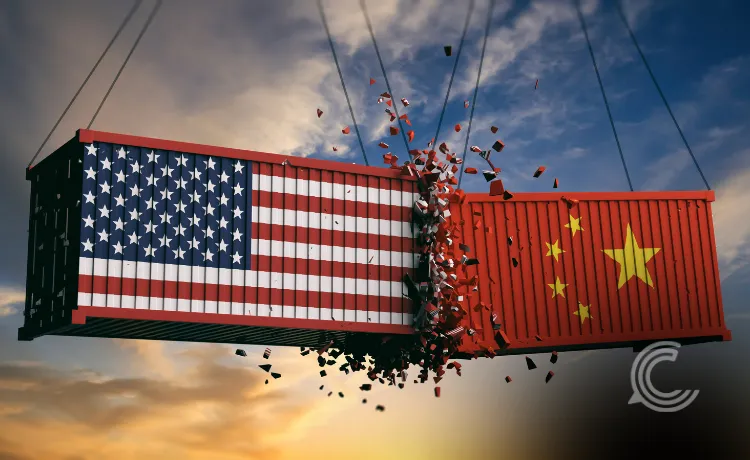How Asian Markets Slide Amid Escalating US-China Supply Chain Tensions

- Major Asian stock markets tumbled following US President Donald Trump threatened a massive 100% tariff on Chinese goods
- The tariff threat was a direct response to China imposing stricter export controls on rare earth minerals, which are critical for various high-tech industries
- China says it would “be sure to resolutely take corresponding measures to safeguard its legitimate rights and interests”
Asian stock markets experienced a sharp sell-off on Monday, sending an immediate signal of global concern after the fragile truce in the trade dispute between the world’s two largest economies, the United States and China, crumbled. The financial downturn followed an announcement from US President Donald Trump, who threatened a significant escalation in tariffs against Beijing.
The move immediately reintroduced volatility, shaking investor confidence that had been built on months of relative calm. The drop was pronounced across the region. Hong Kong’s Hang Seng Index (HSI) fell steeply, while the Shanghai and Shenzhen Composite indices also registered significant dips. Japan’s Nikkei followed the downward trend, as did South Korea’s Kospi.
The broad, synchronous decline underscores Asia’s deep integration into the global manufacturing and trade network, making it acutely vulnerable to disruptions in US-China economic relations.
The New Tariff Escalation amid US-China Supply Chain Tensions
The catalyst for the market plunge was President Trump’s declaration on social media platform Truth Social, threatening to impose an additional 100% tariff on all Chinese goods entering the US, effective November. The new levy would be over and above existing duties, significantly increasing the cost of Chinese imports. In addition to the tariffs, the US administration announced plans for new export controls on “any and all critical software.”
The US action was framed as a direct and forceful response to Beijing’s own recent move to expand export controls on rare earth elements. These minerals are vital to the production of high-tech and military hardware, including electric vehicle batteries, smartphones, and advanced semiconductor production used across global technology industries.
President Trump described China’s restrictions as “extraordinarily aggressive,” accusing Beijing of attempting to “hold the World ‘captive'” by monopolizing control over these materials.
China’s Strategic Export Controls
China, which dominates the global processing and supply of rare earth minerals, announced new licensing requirements and restrictions on both the minerals and their processing technology.
Beijing’s Ministry of Commerce (MOFCOM) stated the new rules were necessary to “safeguard national security and interests” and prevent “dual use,” echoing the same rationale the US has consistently used for its own export controls on advanced semiconductors. This move by China effectively weaponized its own leverage in key global supply chain areas.
The timing of the back-and-forth was particularly disruptive, as it threatened to derail a long-anticipated meeting between President Trump and Chinese President Xi Jinping.15 Investor caution, already elevated by a recent surge in tech stocks that had sparked fears of market overvaluation, quickly turned into a broader risk-off environment.
Beijing’s Measured Warning
In a formally worded statement, China’s Ministry of Commerce signaled a resolute stance against the US threat, maintaining a professional but firm tone. A spokesperson for MOFCOM stated, “China’s position is consistent. We do not want a tariff war, but we are not afraid of one.” This measured response urged the United States to resolve differences through “equal-footed consultation” rather than frequently resorting to the threat of high tariffs, which was deemed “not the correct way to get along with China.
The Ministry warned that if the US “obstinately insists on its practice,” China would “be sure to resolutely take corresponding measures to safeguard its legitimate rights and interests.” This neutral but clear warning suggests that further retaliatory actions from Beijing are highly probable if the new tariffs are implemented, deepening the breakdown of the US-China supply chain. Retaliatory measures could extend beyond trade duties to further restrictions on key exports or actions against American companies operating in China.
The market fallout extended beyond Asia. Wall Street had already suffered heavy losses on Friday following the initial announcement, with the tech-heavy Nasdaq Composite dropping sharply.



